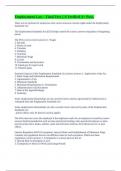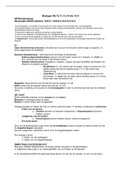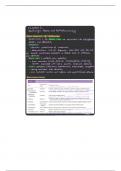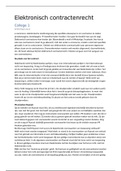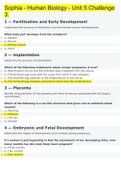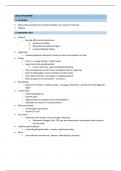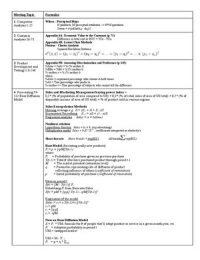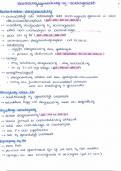Tentamen (uitwerkingen)
Employment Law - Final Test || A Verified A+ Pass.
- Vak
- Instelling
There are no reprisals for employees who correct answers exercise rights under the Employment Standards Act The Employment Standards Act (ESA) helps control the correct answers inequality of bargaining power The ESA covers correct answers 1. Wages 2. Records 3. Hours of work 4. Vacation 5...
[Meer zien]
